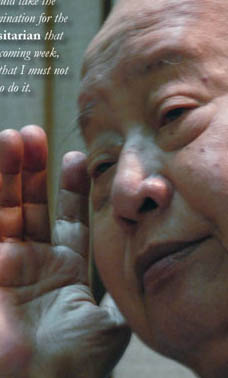englishing pinoy
I have never been more apprehensive about anything in my life than finding courage to write something for blogs. I already have a lot of compositions but I guess that would seem mediocre compared to the rest who write with fashion and unique artistry that either influences or becomes the germ for change. There is what you call a strict line between sacred and profane, or a master and a neophyte – and I believe I belong to the latter. The obvious difference of an amateur and the prolific is the mastery of language (english) and maneuvering it to portray out their minds. However, the sole consolation I get through writing is the fact that I would be sharing my mind no matter how profane or how shallow my ideas are (hell with the skeptics, we all have to have a share of them anyway) and regardless of this, each has each own role to fill up, because even the mundane has something to say about the world.
Last night, I was reading an essay on Fiction and National Identity by Francisco Sionil Jose-the Filipino bid for Nobel Prize laureate – and it prides me to know someone who can write prolifically about the culture of the Filipino from the ground up rather than being engrossed with politics and the popular trends within the confine of self vanity. Reading his works, gives me sense of obligation that each has a role to write – not of the distant land but the very basic which constitutes our own being. Although we have been alienated by the growing culture of west, and that we use their language (English in particular), we can never exempt ourselves from the ground that nursed us till we get conscious of the complexities of life. A proper account of our lives must be etched for perpetuity of our Filipino ways since there is a shift of literary scheme from oral to visual as Nick Joaquin put it. Yet, some among us despised our land, our own color, even our own race, to arrogantly believe that there is something far better in other grounds . and we started to write about Tolkien or Rowling rather than about Deriada, Arguilla, Javellana and even to the point of forgetting Rizal; that is because we always see west as a fairyland and fantasize more about it. We think that economic security abroad means good culture because it promises us grands that we could send back home. This is an ominous misconception; this is what we call dreaming the mundane because if one may contemplate on the exact end of man, one may conceive that men may act differently in various shades of skin, but we have the same color of blood and we all think alike; we are all human beings. The only sheer difference that divides us are the boundaries within the multi-colored world we live in.
We in the east have a bizarre culture where there is harmony between spirit and flesh as opposed to the western speculation that reason dominates the physical; we can never evade this culture. Since the growing impact of the western trend is obviously undeniable, hence must be understood in proper illumination .
When I was in college, a professor of mine told us that the dominant culture is dubious enough to seep into the human psyche and lure people into uniformity. If we try to break down the word, we will have two root words – uni and form. Uni always mean one while form means idea or perception. In coining the word, we buy the notion of “one idea” or simply to become one in style-and this is what this system is doing right now particularly the idea of globalization and, speculatively, the subtle influence of the English language. Actually, there is nothing wrong neither with globalization nor the use of the English language as long as we know where to draw the line, and audaciously stand on our culture. But if we succumbed to the ideologues that work behind it, to the point of being homogeneous with them, the future of preserving our own will be reduced to mere oblivion. If this happens, whose gain will it be?
We are created uniquely, with culture and ways of our own, and this is the only distinctive subject that divides us. If we lose it, where do you think the Filipino would credibly stand for?
The universality of man is not meant to divide but to unite, but sad to say that individualistic philosophy of western paradigm has created a trend that entices (inventing a need) the taste of our generation-the Generation-X that puts up feud rather than unity and respect fro diversity. Because of this influence, we forget where we are and what we are because of this influence. We may be good in English, but we can never be American or British. That is the fact. However, being good in English doesn’t mean we are no longer Filipinos.
English language has become an integral part of our culture to the brink of owning it as our third language. Admit it to say, from the moment we began to develop an acoustic ability in our early days, English language was already there walking along until we took the first step in our classrooms; it has become the main medium of instruction in all levels. So who said that English is not our own? It is ours; we have come to embrace it. Thus, there is nothing wrong to put the context of the English language and use it to make our own culture understood better. Nobody after all owns the English language in Asia better than the Filipinos and I stand to that claim. Some said that the proper way to explain Filipino is to use Filipino. What is wrong in using English anyway? Why not? As long as we stand to be Filipino, using English is absolutely fine. Our tongue may take different forms in the changes of time and the drive to assert the place of our race in the globe, but we can never lift our feet from the ground where we have bloomed; just change your tongue but keep your feet still.
There are various spectacles on how to address the multitude of language as propaganda or the herald of cultural influence, but I will not dwell with this further more because I am just highlighting the core of being what and being where- the being and theplace to be of Filipinos. And with regards to lEnglish anguage, what is important is that we gear it to discover our very selves and the place that nurtured us. As what Gandhi said , he would welcome the four winds of the earth in his house but that he would see to it that his house is not blown down by any of them. Even Rizal understood this, and by far history , has used Spanish to portray the lives of the Filipinos- a species existing in the orient world that the western world and even America has been once nescient of.
Summing up all accounts, I commend that F. Sionil Jose deserves to be read by every Filipino for he has shown better the use of language either in English or not; and he firmly stands on his culture and on being a Filipino, despite being a polyglot by nature.
P.S. For thorough details read F. Sionil Jose, In Search of the Word: Selected Essays, De La Salle University Press, 1998.








Hey, lovely ideas you got here. I’ve always been asked why I prefer to use English. And my reply has always been – I always love languages. If it’s only possible I’d take up French to throw into the mix. Because I love hearing French conversations.
I used to watch French films with no subtitles just for the pleasure of hearing the characters speak French. Of course, I didn’t presume to understand it. A rough idea maybe, but the whole glorious story of the film.
So my take in all this is that while Filipino would help a lot in fostering nationalism, I essentially find no credence in the argument that one must limit ourselves to our native tongue just so we can wear our proud nationalism on our collective sleeves. Nationalism for me transcends languages. Just saying.
Hey, nice meeting you. Thanks for visiting my blog.
PS: Is that fiction that one you wrote under the tab “In search of the lines”? There were some parts of it that surprised me. That story has raw power. Please tell me it’s a short story of sorts. “,)
exactly Sir. the understanding of Nationalism within the shade of a native lexicon is like a wilted plant which ironically had not seen the sun.undeniably, the multitude of ideas, which can be found in books, films, etc., come in various languages and there is no way we should be left behind all for the sake of celibacy to our native tongue.yet, of course, we should love our own language.
****
…and yes Sir, it’s a short story. sorry for the constructions and many more.hehehe. i am not a born writer nor educated for writing related courses.
i have now the final copy of that though quite reluctant to put it in my page for some reasons…hehehe. nice meeting you too 🙂
“…celibacy to our native tongue.” I love the way you put that thought across.
Sounds a little painful. Ahahaha.
Why the reluctance? You started off well with your story. Okay, then, you can whisper it to me when you feel like it. Give it a thought though. You write well naman eh.
hahaha..well see. 🙂
Hi, I am a FilAm community advocate based in Antioch. I am planning to rally the Filipino community behind the Nobel Lit nomination for F. Sionil Jose if someone qualified as official nominator per Nobel Committee rules would come forward & submit an official nomination for Mr Jose before 2/2011 deadline.
no fundraising will be undertaken by my campaign
would appreciate Re: nominators or any other info from you
Sincerely,
Maria Elizabeth Embry
2101 Hamlin Ct
Antioch California 94509